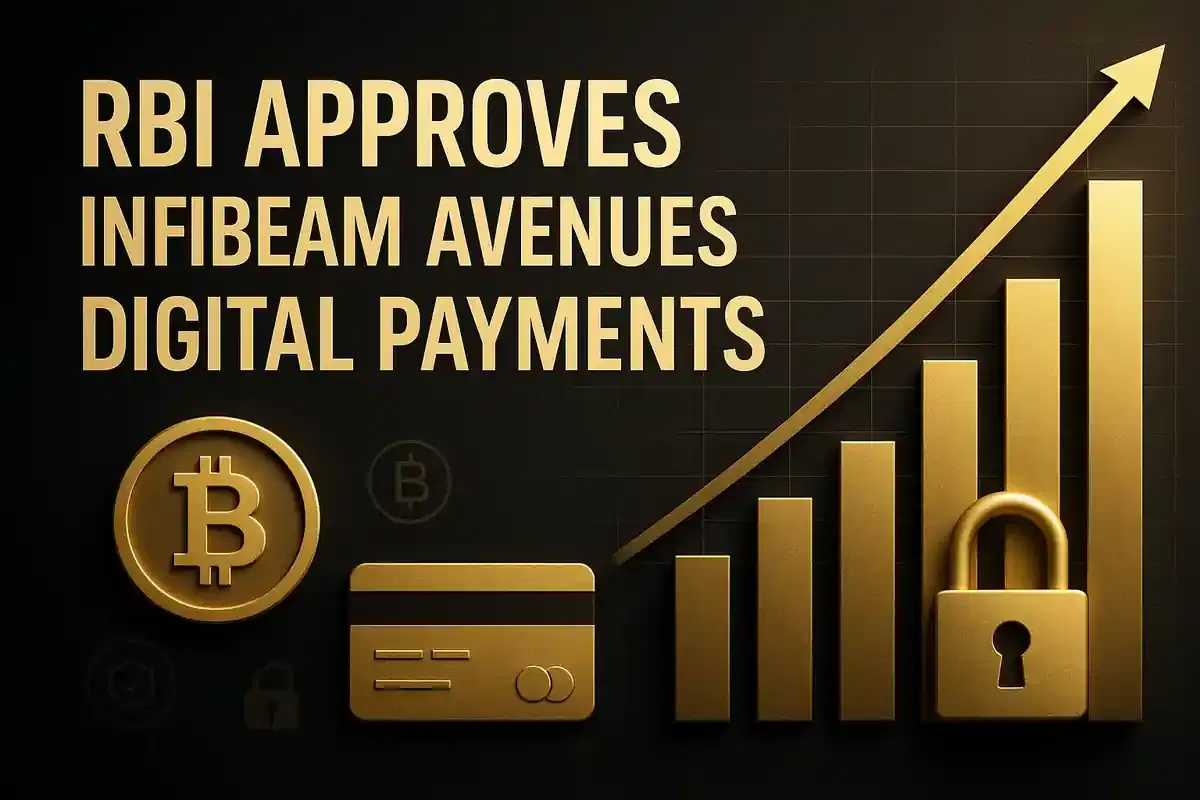Infibeam Avenues Receives In-Principle Approval from RBI for Prepaid Payment Instruments
Tech
|
29th October 2025, 10:41 AM

▶
Stocks Mentioned :
Short Description :
Detailed Coverage :
Infibeam Avenues Ltd has obtained in-principle approval from the Reserve Bank of India (RBI) to issue Prepaid Payment Instruments (PPIs), a significant step under the Payment and Settlement Systems Act, 2007. This approval is conditional; Infibeam Avenues is required to complete a System Audit in accordance with statutory guidelines within the next six months. Following the successful completion and review of this audit, the RBI will issue the final authorization, enabling the company to commence PPI issuance.
Upon receiving the final nod, Infibeam Avenues intends to launch a comprehensive suite of digital prepaid payment solutions under its CCAvenue Go brand. These offerings will include PPI Wallets, Prepaid Gift Cards, and Travel and Transit Cards, integrated with value-added financial services across CCAvenue's vast network of millions of merchants. Vishwas Patel, Joint Managing Director of Infibeam Avenues Ltd, stated that PPI functionality is now comparable to a bank account, offering extensive payment capabilities.
Separately, the company's subsidiary, IA Fintech IFSC Private Limited, received in-principle approval from the International Financial Services Centres Authority (IFSCA) to operate as a Payment Service Provider in GIFT-IFSC. For context, Infibeam's revenue from operations in the first quarter of FY26 rose to Rs 1,280 crore, though net profit saw a decline.
Impact: This approval empowers Infibeam Avenues to significantly expand its digital payment ecosystem, offering new products and services to its large merchant base and consumers. It is expected to drive business growth and enhance market position in the competitive fintech landscape. Rating: 8/10
Heading: Definitions of Difficult Terms
Prepaid Payment Instruments (PPIs): Digital tools that store monetary value, allowing users to pay for goods and services, transfer funds, or pay bills without directly accessing a bank account for each transaction. Payment and Settlement Systems Act, 2007: A law in India that governs payment systems and the issuance of payment instruments, aiming to ensure the safety and efficiency of digital transactions. System Audit: An examination of a company's IT systems and processes to ensure they are secure, functioning correctly, and compliant with regulations. statutory guidelines: Rules and requirements established by law or regulatory bodies that companies must follow. final authorization: The ultimate official permission granted by a regulatory body after all conditions have been met. flagship brand: The primary or most important brand under which a company offers its products or services. value-added financial services: Additional services beyond basic transactions, such as analytics or personalized advice, offered by financial companies. merchant platforms: Systems that enable businesses to accept payments from customers. International Financial Services Centres Authority (IFSCA): A statutory body that regulates financial services in International Financial Services Centres (IFSCs) in India. Payment Service Provider (PSP): A company providing services to merchants to accept various forms of payment. GIFT-IFSC: Gujarat International Finance Tec-City International Financial Services Centre, a special economic zone in India for financial and IT services. escrow: A financial arrangement where a third party holds and regulates payment of funds for two parties involved in a transaction. cross-border money transfer: Sending money from one country to another. merchant acquisition services: Services that help businesses sign up with payment networks to accept card and digital payments. revenue from operations: The income generated from a company's primary business activities. net profit: Profit remaining after all expenses, taxes, and interest are deducted from total revenue.